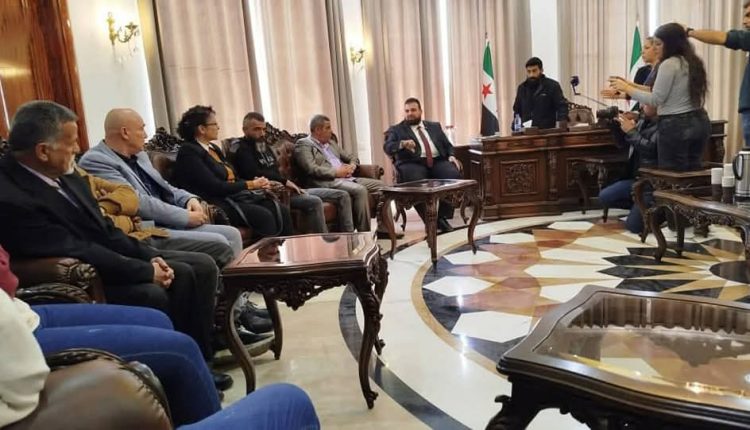Druze Activist Details Abuse of Civil Society Delegation Detained by Syrian Government Security
By Kardo Roj
SUWAYDA, Syria (North Press) – A prominent civil society activist from Suwayda has revealed disturbing details regarding the recent detention of nearly 20 civilians en route to a civil event in Raqqa, claiming the group was subjected to sectarian abuse, violent treatment, and unlawful confiscation of personal belongings by Syrian security forces.
In an exclusive interview with North Press on Monday, engineer and activist Ghada Shaarani stated that the arrest occurred last week at a security checkpoint near the al-Waer area in Homs. The group, composed of activists and community members from Suwayda and other provinces, was traveling to Raqqa to participate in a civil forum when they were stopped and held without formal charges.
“We Were Beaten, Insulted, and Threatened”
Shaarani described the ordeal as a deliberate act of intimidation. “The checkpoint personnel insulted us using sectarian slurs, violently beat several of us, and seized our national IDs, money, phones, and even watches,” she said. The detainees were reportedly held for nearly two hours at the checkpoint under harsh conditions.
She further alleged that the group was then transferred to a detention facility in the Harem area of northwest Idlib, where they were placed in solitary confinement and threatened with physical liquidation.
The incident has raised concerns among civil society observers and human rights advocates, particularly given the apparent targeting of peaceful activists involved in civic dialogue efforts.
According to Shaarani, their eventual release was facilitated by external mediation, including outreach from actors in northeast Syria. While she did not specify the identities of the mediators, her reference to “contacts from east of the Euphrates” suggests intervention by representatives of the Autonomous Administration of North and East Syria (AANES), which has previously facilitated dialogue and supported civil society efforts across regions.
Following their release, the delegation met with Suwayda’s governor, Mustafa al-Bakkour, in an official setting to discuss the incident. Shaarani, who participated in the meeting, said the governor requested formal documentation and legal complaints from the group, promising to follow up on the matter through official channels.
“The governor showed a willingness to listen, but we are waiting to see concrete actions to hold those responsible accountable,” she added.
Context: Rising Pressures on Civil Society in Syria
This incident highlights the increasingly constrained space for civil society in Syria, particularly for groups and individuals advocating for cross-regional dialogue or participating in events held outside regime-controlled areas.
Observers note that while the AANES and affiliated institutions in northeast Syria continue to foster civil participation and inclusive governance, such efforts remain vulnerable to suppression when involving activists from government-held territories.
The delegation’s original destination, Raqqa, has in recent years become a hub for civic and cultural initiatives under the AANES, attracting participants from across the country despite logistical and political challenges.
The arrest and reported mistreatment of the Suwayda delegation have sparked calls for greater protections for civil society actors operating in Syria’s fragmented landscape.
While the Syrian government has not issued a public statement addressing the incident, activists and observers stress the importance of impartial investigations into human rights violations and the protection of peaceful civic engagement.
Shaarani emphasized that despite the trauma, the delegation remains committed to its mission. “We went to Raqqa to build bridges, not to provoke. Our message remains one of unity and dialogue—and no checkpoint can change that.”
The Suwayda incident underscores the risks involved—but also the determination of civil society actors to persist. Ensuring their safety, freedom of movement, and right to assembly will be critical in shaping a more inclusive and rights-respecting future for all Syrians.

